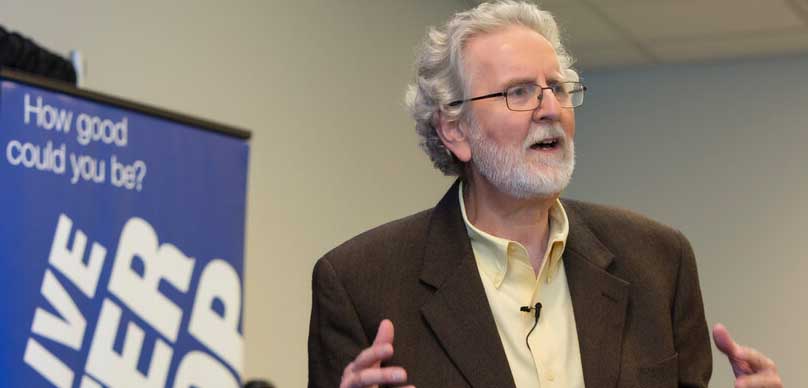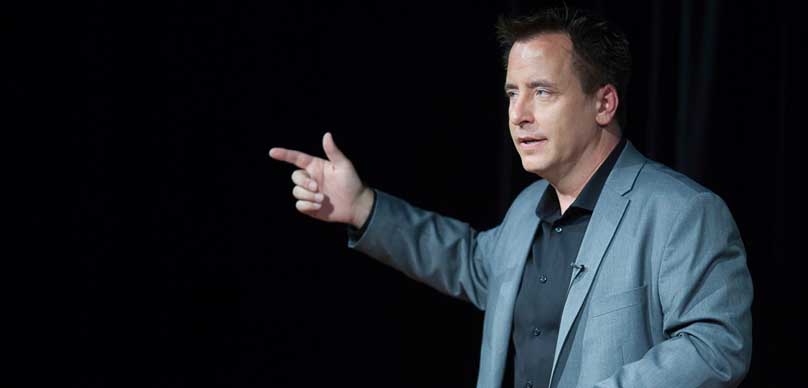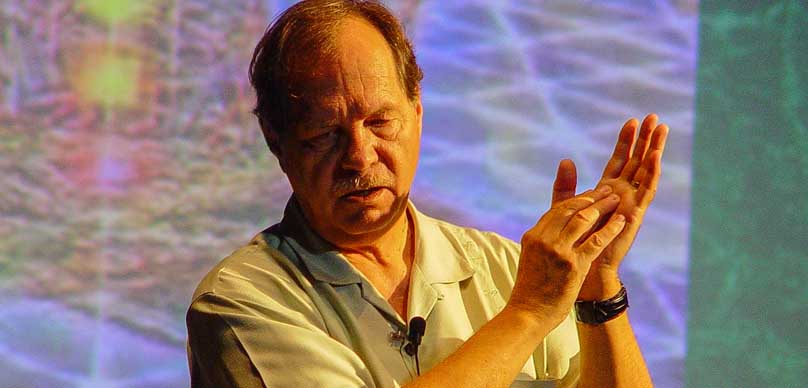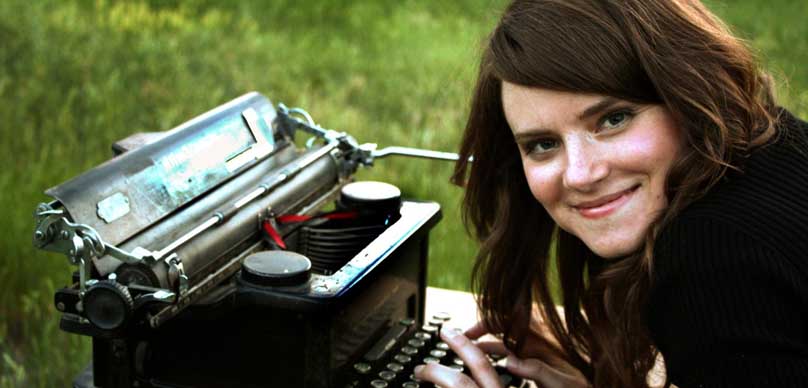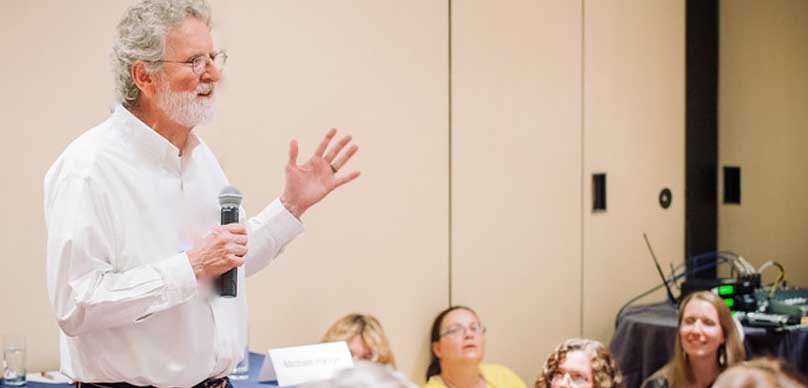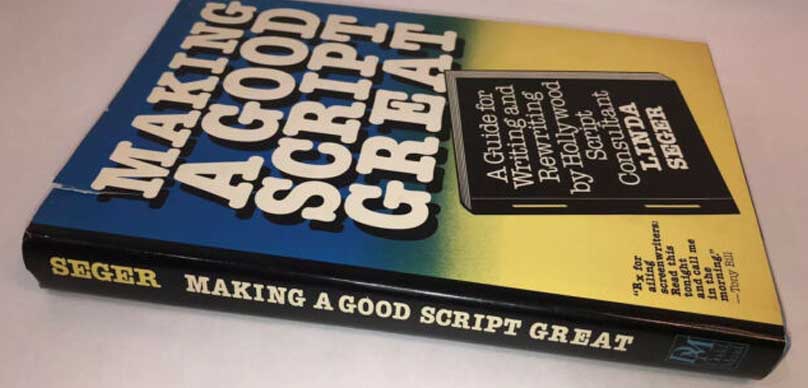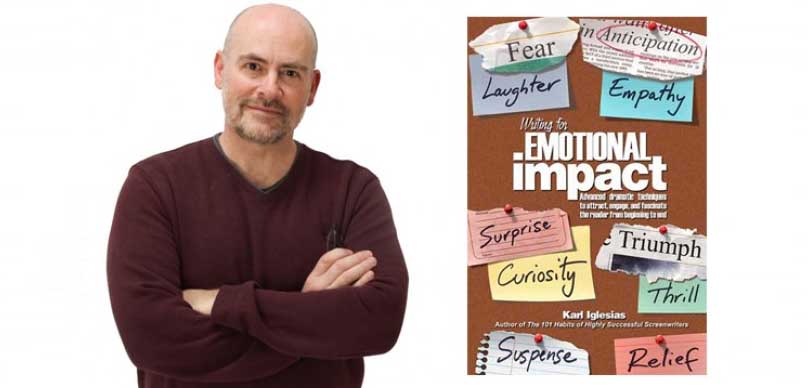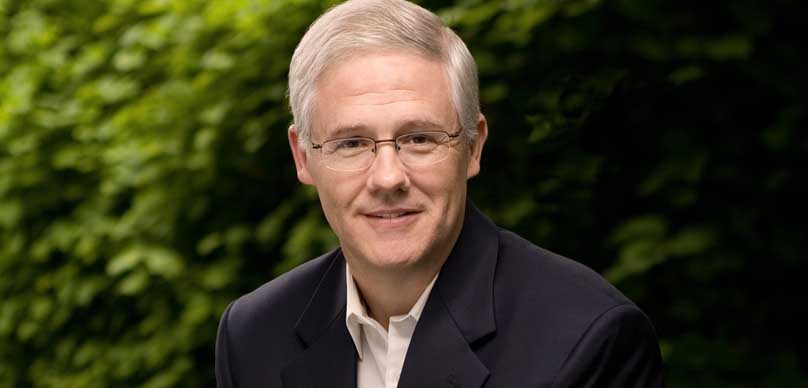This week we have a returning guest, screenwriting guru Michael Hauge. In this episode, he discussed The Six Stages of Character Development. A very eye-opening episode. Check it out.
These videos on screenplay structure are from his best selling online course (available on IFHTV.com): Story and Screenwriting Blueprint – The Hero’s Two Journeys.
In more than 4½ hours of lecture, discussion, and Q&A, Michael Hauge, author of Writing Screenplays That Sell and Selling Your Story in 60 Seconds: The Guaranteed Way to Get Your Screenplay or Novel Read; and Christopher Vogler, story analyst and author of The Writer’s Journey: Mythic Structure For Writers, unite to reveal the essential principles of plot structure, character arc, myth, and transformation.
Right-click here to download the MP3
SPONSORS
- Bulletproof Script Coverage – Get Your Screenplay Read by Hollywood Professionals
- Audible – Get a Free Screenwriting Audiobook
Alex Ferrari 0:00
So without any further ado, enjoy Michael Hague.
Michael Hauge 4:50
And that brings us back to this six stage structure. Now I used to think that character arc just occurred in its own sweet time, wherever it was. I think if you read my book, I sort of referred to it that way. I say there's a structure to the plot, but not to the character arc and I was wrong, I think there's a very clear structure to the arc for the character. Because each of the six stages I gave you before correspond to a stage of the hero's inner journey.
Even though through the movie, there is a constant tug of war between identity and essence. There is also an that's why they call it an arc. It's a gradual transition or transformation. So in the setup, remember that first 10%, this is where your hero exists completely and totally within her identity. Shrek is just an ogre, who keeps people away. Rose is just a woman who exists in all of this protective wealth. Mitch McDeere is just a guy who is going after money. He says to me, did you ever believe that I'd be able to make this kind of money. And she says, sure, because of course, she sees his s, we're going to get back to her in a second, then an opportunity at 10% is presented to the hero. And for the next 15% of the film, in that new situation, not only are they getting used to the new situation, your hero is going to get a glimpse, a peek at what life would be like living in his essence. So not only does rose, start getting acclimated to the Titanic, starts to get a sense of what the other thing might be because she sees Jack making these passionate drawings. And she looks in any catches her looking, and she looks away. And she has this beautiful art that nobody else understands. But she it touches her. And then Shrek, it's it's there's this very pointed moment. Which also is, to me a very subtle form of it'd be interesting to see if Chris agrees, because I haven't talked to him about this. But it seems like there's a very subtle but obvious sense in which trek is refusing the call. Because he steps out. He says All I want is privacy living in this identity. And then what's the opportunity, all these fairy tale creatures, and he says, Oh, no. And he says, I want you, I want to get you off my line are going to do whatever it takes to get you back. And he thinks they're going to just run away. And instead they all applied. And somebody comes up and drapes a robot over him, there must be some name for a royal robe. It's like he's been crowned you're our hero. And he, he like shakes his head and immediately shrugs it off. He's getting a glimpse of what it would be like to be accepted. But he wants nothing to do with it. He just wants to be in his identity. But he's still getting a picture of it. Then what happens? Stage Three goes into in, or that leads him into the new situation. Same thing happens when he goes to Lord Farquaad. It's preceded by him fighting off the soldiers who come after him. And it's a like a mock wrestling match like a WW. F match. And when it's done, there's this scene just for a joke where he's going like this. He says thank you, thank you. I'll be here till Thursday. And it's just sort of, but it's also look at this. Now we starting to accept the possibility of being a hero, getting more of a glimpse. And then of course, at the one quarter mark, Lord Farquaad says, Okay, you want your land back. Here's your goal, rescue the princess, bring her back to me. That's the outer motivation. That's the visible goal. And it happens precisely at the 25%. So now what happens for the next stage, the hero is straddling the fence or straddling something, one foot into essence, one foot back, not fully committed. He's still talking about onions and layers, and he just wants to go in and get the princess take her back and be done with it. But he is starting to pursue something that is going to make him more of a leader more popular, more accepted. That's good. And he's starting to get closer to donkey, which takes risk because he's never really had a friend before. And then at the midpoint, he gets the princess they come down the hill precisely at the midpoint what happens he takes off his helmet and tries there's that wonderful moment when he smiles that sort of Toothless smile trying to look his best. Okay, and now he realizes Wait a minute, I'm starting to fall for her. And that's the point of no return. Especially because the scene that follows it is This also runs parallel for the princess but the princess has been talking in this artificial language, Thou art my prince and death vow one to save me and you thou must carry me and give me a kiss and all this malarkey. And that's her living in her identity.
She, the opening shot of the princess is her in a tower, a perfect image of identity, because towers are both protective. And their prisons, exactly the same opening and Shakespeare and Love opens in a castle. So she's perfectly protected. When she's, you know, they're in safe and apparently well fed and stuff. But she can't leave. She stuck. And of course, her identity is she is defined by others, because she's defined by fairytales. She knows all the rules, you know, you've got to carry me away. And then you got to give me a kiss. And he says, You've had a lot of time to think about this, haven't you? Because he's saying, this is your identity, but he sees her as something more. And then later when they have the Robin Hood encounter, and she shows that Charlie's Angels parody kick, he starts to respect or something more than this hothouse flower that he's rescuing. And they start to fall in love. So that's the point of no return. And he starts pursuing her until he overhears her. He gets too frightened when he hears her talking about ogres as too ugly, and you can't have a relationship with an ogre. He doesn't know she's talking about herself, because she's also retreating at that point to her identity. But that's when major setback, typical for a romantic comedy, which is what this is, the two people will separate at that point. And Sleepless in Seattle, right at the three quarter mark, Annie, the Meg Ryan character declares, I'm back I'm going back to Walter Sleepless in Seattle is history. And of course, then the audience thinks that all is lost. Because what's happened is on the inner level, once the character passes the point of no return, they fully commit to living in their essence, trek is going to open up and risk doing that. And now the outside world starts coming in the conflict in the first half of act two, and someone was asking about that, that first half the conflict comes from obstacles inherent in the goal, the moat and the dragon and all the things we knew he was going to encounter. But now what happens is the other worlds coming in, he doesn't think she can love Him. Lord Farquaad comes in and takes her away. And so the hero retreats, the hero gets finally so frightened of risking this new thing that they make one last try retreating to their identity. And that really is the major setback at the end of Act Two. So they run away. And they go back, it's when she remember, she jumps on the lifeboat go, it's the the lifeboat for the rich. She's going to make one last stab at being rescued in Titanic by her identity. And then she says what all heroes must then say in stage five. And that is, wait a minute. This sucks. This may have worked for me at the beginning. But I've had a glimpse, I've had a taste of who I truly am. This doesn't work for me anymore. I can't do this. I have to go after who I truly am. I have to be myself. And I certainly have to find my destiny, which in a love story is the other person. And so that's the final push. It's saying I don't care what it takes, I will risk death. Because I already I already experienced it. My identity is already dead. I can I can do this. And they take every last ounce of courage they have until they reach the climax. And the climax is the moment not only of achieving that visible goal, it's the moment of fully realizing the character's essence. And that takes us into the aftermath. The aftermath is the part of the story where we say okay
this is now the new life, the hero is going to live having fully realized who they truly are. And so at the end of Shrek, we see him leaving the swamp that was his protection and leaving behind the fairytale creatures. Because the fairy tale creatures were her identity. This is a this is really a movie about getting rid of the fairy tale definition of the way you should be or the way life is and defining themselves. So they ride off into the sunset. And they're fully living their essence or when he says at the end of the firm. Okay, we're we're going back to Boston. It was interesting when Chris was talking about the elixir because sometimes it's very subtle, but I think the elixir in that movie is the law. He's saying we're going right back where we started, which is I mean there's a circular pattern if you ever saw one But now he's going back to the law, because he says when he's talking to Ed Harris, and now movie, the FBI guy, and he says, here's the tape of our conversation where you tried to bribe me, we force me to do this. He says, You know, I, could you I could get a lot for this or something like that. He says, Well, why are you giving it back? Just because it's against the law. And then he says, You know what you did. He says, You made me remember the lies that four years of law school didn't do that. But you made me remember the law, meaning you put me in touch with who I truly am, which is someone who stands up for what's right. And then when Abby comes back, there's that wonderful line, where he says, Did I lose you? And she says, How could you lose me, I have loved you, since the moment I knew you. And before I loved you, I loved the promise of you. And you have now fulfilled that promise. That's what brings two people together. She says, I see, I have always known who you truly are, you just had to step up into it. And you've done that. So now you cannot lose me. Because that's who I was always in love with. Not the guy who was scared of the trailer park, who had forgotten the law, the guy who lived his essence. And so the elixir that they take back is he has found his ideals. And now he's going to go back and be a lawyer that stands up for what's right, and go serve the law, our society, whatever, in a different way at the end of the story. And one last thing before I open it for questions, which you may or may not want to hear, but as I said at the top, this is very much about real life. Everyone in this room has a visible goal might be slightly different. But you either want to finish a script. Or you want to get an agent, or you want to finish your novel or you want to get it published, you want to get your movie produced, you want to finish your film, or you have some brass ring you're after. Because you long at a deeper level to be a part of making movies. And you are pursuing that goal, because it's part of your longing. That's the good news. But here's what I got to tell you. We all pay lip service to what we long for. There's a part of all of us that we frequently we always have to go back and revisit that you can say, Yeah, I want to make it in Hollywood. But what you also have to ask is how would you fill in the blank, I'll do whatever it takes to sell my script. Just don't ask me to blank. I did this as an exercise in a class once with saw with one of my students. And I said, Would you be willing to go through this process? So she got up in front of the room? And she said, the thing is, I can't figure out why I can't sell my script. She says I've written a number of scripts. I said, Well, have you read books on screenwriting? Yeah, I've read, you know, books, I've taken classes, we'll do you have a regular regimen? No, I write every day. And I said, God, it sounds like you're doing everything you can do. And she said, Oh, yeah, because when I grew up, I was taught if you want something done, you do it yourself. Uh huh. So I turned into the sort of shrink slash asshole that I sometimes am prone to be. And I say, let me ask because she was making an identity statement. Oh, this is who I am. This is how I was raised. And so I said, let me ask you some, when was the last time you phoned somebody and ask them to help you sell your script? And you could practically see your melt? It was like the Wicked Witch of the West. No, no, no. Because when you touch somebody whose identity it is, you've like, slapped him upside the head.
And she said, because that's what her wound was, she was raised to believe you can ask for help. And I said, let me ask you something. And I said, why not? And she just got very frightened at the prospect. But I said, let me ask you some Why do you want to be a screenwriter? She said, Oh, because I love it. I just love movies. And I love taking that story and turn into that. And I said, if I could promise you, you would have that experience every day of your life. Would you be willing to risk calling people and asking for help? And she said, Sure. Because that's the solution. You've got to get in touch with what your inner conflict you've got to get in touch with your identity. But the answer is find your lawn and live in that space risked going into that space, because that's what heroes do. They want so badly to get that that finally it's worth the danger and worth the risk of love die of letting who they thought they were die and resurrecting it something much more.
Alex Ferrari 19:49
So I hope you got a lot out of that. That little snippet of the course by Michael Hagen, Chris Bolgar. I mean, I've been a big fan of Michael and Chris's. Since I was in college. Actually, and I was I jumped at the chance of working with them on this project and really excited to share this information with you, but it's a lot of great valuable stuff that you just heard. And the course is also a lot of cool stuff as well. So again, if you want to get access to the course head over to indie film hustle.com Ford slash story blueprint and that's it for this episode guys. If you want to get links to anything we discussed in this episode, just head over to indie film hustle.com Ford slash BPS zero to zero for the show notes. And if you haven't already, please head over to screenwriting podcast COMM And leave us a good review for the show. We're a new show it would really help us out a lot. And as always, keep on writing no matter what. I'll talk to you soon.
Sign up to receive email updates
Enter your name and email address below and I'll send you periodic updates about the podcast.
Please subscribe and leave a rating or review by going to BPS Podcast
Want to advertise on this show? Visit Bulletproofscreenwriting.tv/Sponsors

